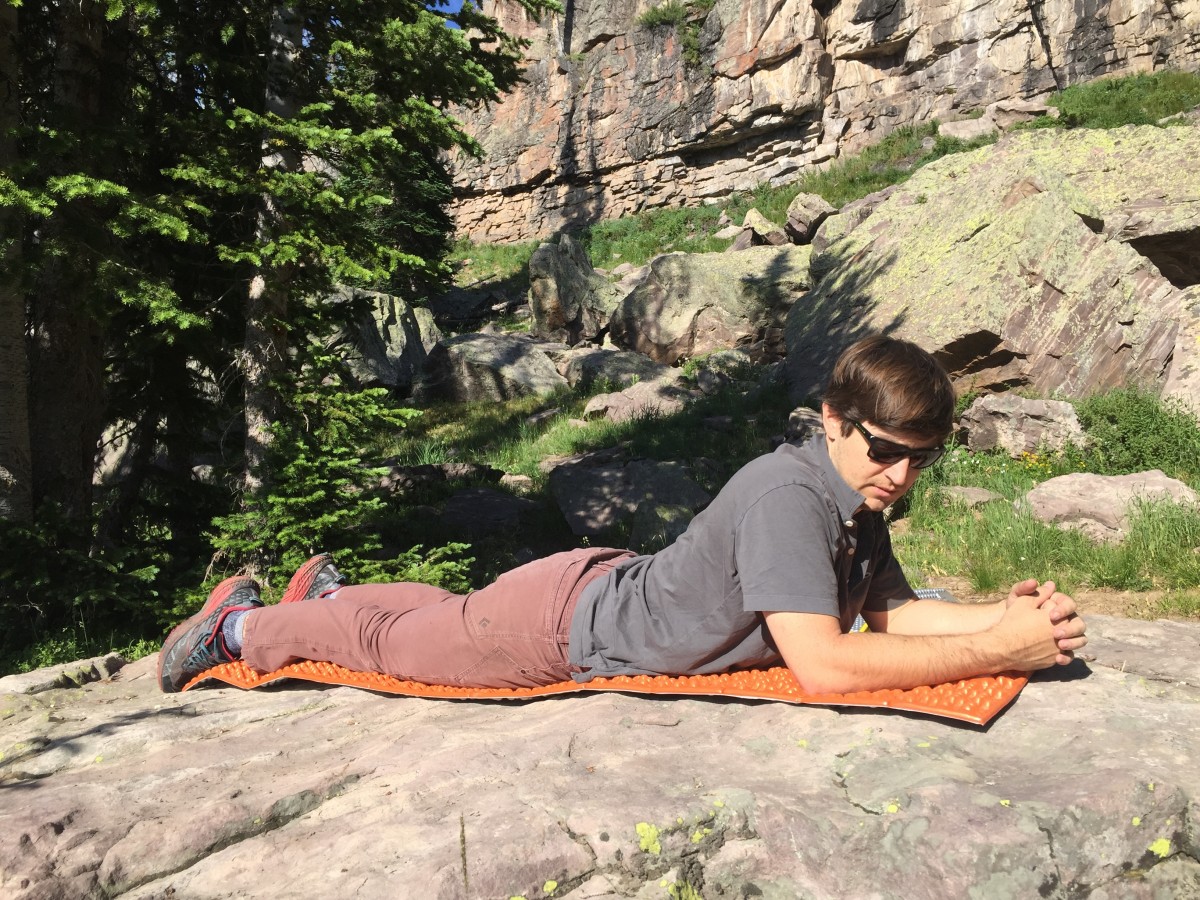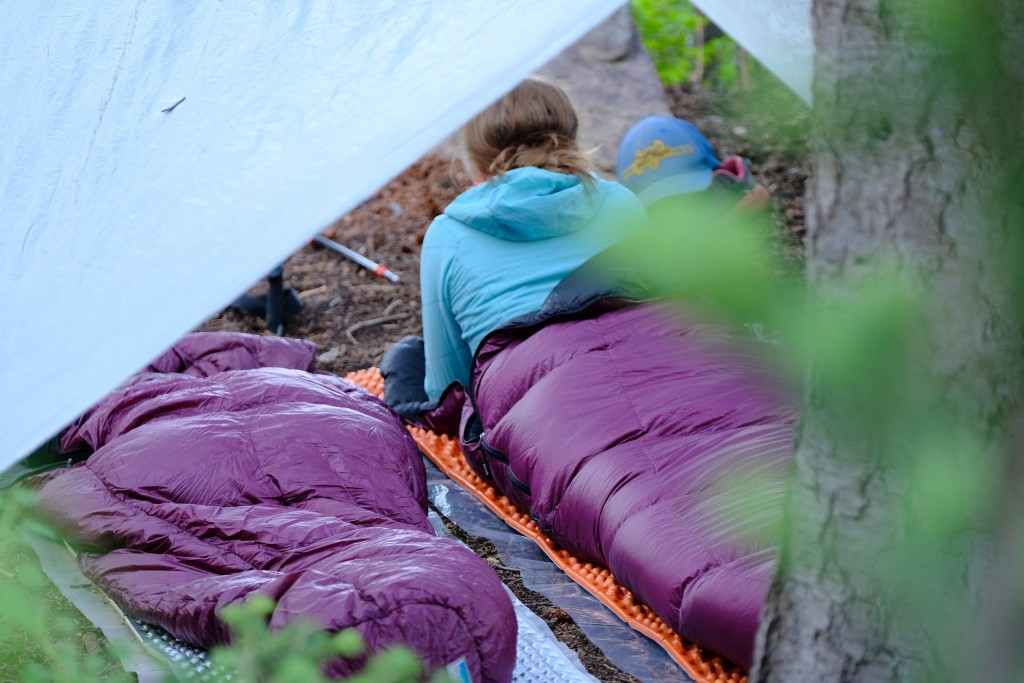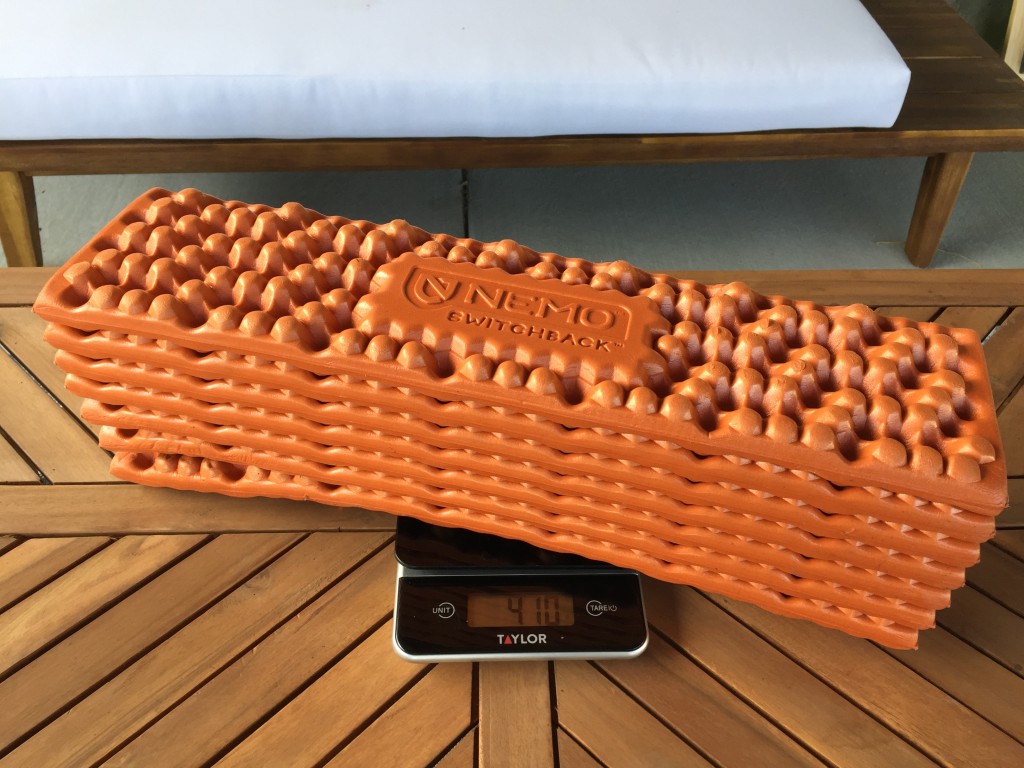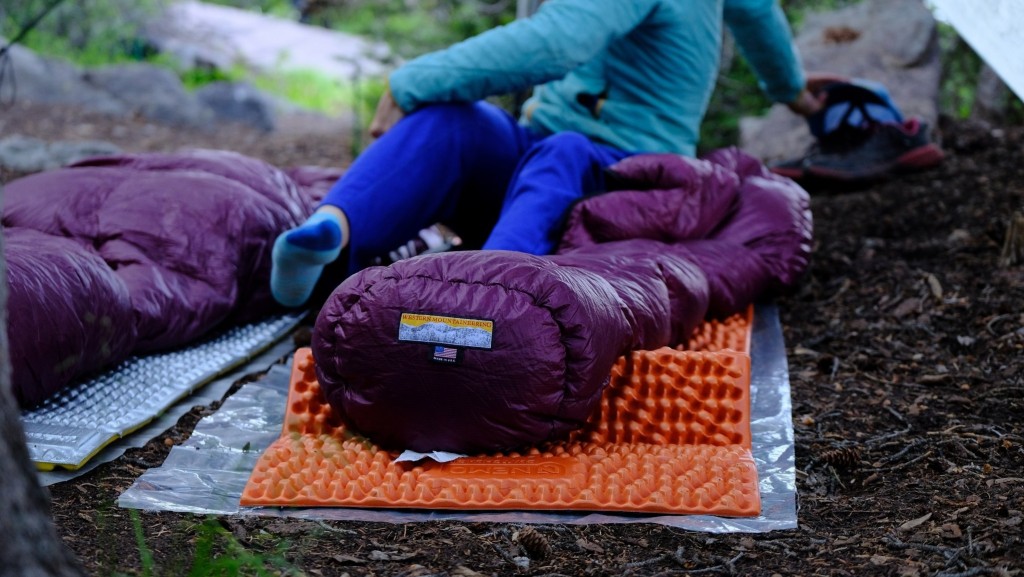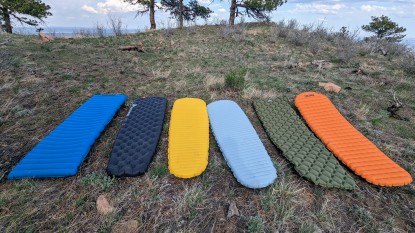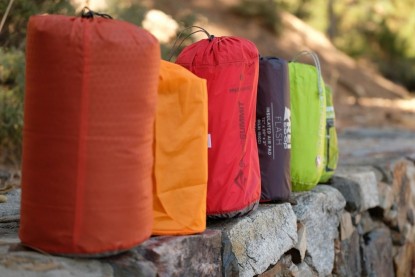NEMO Switchback Review
Our Verdict
Compare to Similar Products
 This Product
NEMO Switchback | |||||
|---|---|---|---|---|---|
| Awards | Budget Pick for Basic Performance | Best Bang for the Buck | |||
| Price | $44.95 at Backcountry Compare at 4 sellers | $47.99 at Amazon Compare at 3 sellers | $47.95 at REI | $50 List $28.99 at Amazon | $30 List Check Price at Amazon |
Overall Score  |
|||||
| Star Rating | |||||
| Bottom Line | A lightweight sleeping pad that won't break the bank and makes a great addition to winter sleep systems | If you want a light pad on a budget, it's hard to beat this one | This closed-cell foam pad is light but bulky and we like it better as a supplement than our one-and-only | This pad will do the trick if you're on a budget, but it's thin and not very comfortable | While cheap and small, this sleeping pad isn't very cozy or warm |
| Rating Categories | NEMO Switchback | Klymit Static V2 | Therm-A-Rest Z Lite... | Sleepingo Large | Tame Lands |
| Comfort (30%) | |||||
| Weight (30%) | |||||
| Warmth (20%) | |||||
| Packed Size (10%) | |||||
| Quality of Construction (10%) | |||||
| Specs | NEMO Switchback | Klymit Static V2 | Therm-A-Rest Z Lite... | Sleepingo Large | Tame Lands |
| Measured Weight | 14.5 oz | 17.7 oz | 14.0 oz | 14.6 oz | 17.0 oz |
| Claimed R-Value | 2.0 | 1.3 | 2.0 | 2.1 | 2.2 |
| Packed Volume (L) | 8.9 L | 0.9 L | 9.0 L | 1.2 L | 1.9 L |
| Thickness | 0.9 in | 2.5 in | 0.75 in | 2.0 in | 2.0 in |
| Bottom Material | PE foam | 75D polyester | PE foam | 20D ripstop nylon | 40D ripstop nylon TPU |
| Tested Length | 72 in | 72 in | 72 in | 75 in | 74 in |
| Tested Width | 20 in | 23 in | 20 in | 23 in | 24 in |
| Insulation Technology | Closed-cell foam and low-emissivity film | Not stated | Closed-cell foam and reflective ThermaCapture coating | Not stated | Not stated |
| Double Size Available | No | No | No | No | No |
| Type | Closed-cell foam | Air construction | Closed-cell foam | Air construction | Air construction |
Our Analysis and Test Results
Rugged functionality is the name of the game for closed-cell pads such as the Switchback. Deployment and packing is a snap, and it can't be popped, so a night on a deflated piece of cloth will never be something to worry about. It's also incredibly lightweight, though it does take up quite a bit of space.
Performance Comparison
Comfort
Here's a big caveat to start: closed-cell foam pads are not even on the same planet for overall comfort when compared to inflatable sleeping pads. And the Switchback is no different. This pad is more comfortable than sleeping directly on the ground, but only slightly.
The little egg carton dimples of the Switchback are noticeably taller and more spread out than other foam pads we have tested, and the effect is noticeable. Throwing the Switchback down on a giant flat granite block is probably not where you would want to camp, but it did accentuate the superior design of this pad over others, especially over completely smooth yoga pad-looking mats. We could even prop up on our elbows for a bit before the pressure points became too uncomfortable.
When compared to inflatable pads, even the not-so-comfortable ones, the Switchback is lacking. If you're prone to restlessness because of pressure points, you'll either have to find some uber-soft pine boughs to supplement the padding or check out some of the inflatable pads in our review. We woke up a lot when sleeping on this pad to shift and adjust as our hips and shoulders dug in.
Weight
At 14.46 ounces on our scale (410 grams), the Switchback isn't heavy. It lands just above the middle of the pack among the pads we tested.
Each segment of the Switchback weighs about an ounce, and cutting the pad down is easy. Cutting it to cover just your hips and shoulders would leave you with a pad weighing in at only about seven ounces and everything packs down quite small. Doing this will obviously be even less comfortable, but you'd still have cushion where you need it most while also having the lightest weight sleeping pad possible, all for a fraction of the price of an ultralight inflatable pad.
Warmth
Closed-cell foam and heat-reflective film give the Switchback a claimed R-value of two. While that doesn't sound like much compared to pads that weigh a similar amount, have a higher R-value, and offer more cushion, it does have some solid heat retention properties.
We found summer high country camping on chilly nights to be quite comfortable with the Switchback. Our thin 30-degree down sleeping bag was prone to dumping our heat into the ground without insulation. The Switchback proved to be a nice barrier, and while we might have developed some pressure sores on our hips, we didn't freeze. Other closed-cell pads with a similar foam/heat reflective film combo were nearly imperceptible in the differences felt with insulation.
Packed Size
The really unfortunate feature about the Switchback and other closed-cell foam pads is their large packed size. Yes, there are closed-cell pads that take up even more space than this one, but this pad isn't small by any means.
If you need to transport your pad inside your pack, the Switchback may be a no-go. Attached to the outside, it can easily snag on branches, highlighting a significant downside of all closed-cell pads, not just this one. That said, having an ultralight kit and backpack that utilizes a closed-cell pad as structure and padding for the back would be an excellent strategy with this pad.
Quality of Construction
The Switchback has an interesting give and take with construction quality. At its core, it's just a piece of textured foam that folds accordion style. You can't do a ton with this design to make it any better. It isn't higher quality than any other folding foam pad in terms of construction and durability, but it does exactly what it needs to do. It won't pop and doesn't require any patches or pump sacks. That said, it is vulnerable to rips and tears, especially because you'll likely have to strap it to the outside of your pack for transport. However, a torn version of this pad will still work just as well, which is a nice kind of insurance to have.
After about a month of using the Switchback, the egg carton ridges started to show a bit of collapse and degradation. A high point here is Nemo's lifetime warranty, which could prove valuable if you accidentally rip your pad in half midway through your next backpacking trip. But, as we said, if you do rip it in half, it will still work quite well.
Another massive benefit to the Switchback is that you can just throw it down without having to inflate anything. Some inflatable pads can take several minutes of uncomfortable huffing and puffing just to get set up. Sometimes, inflatable pads even require some middle-of-the-night puffs to keep them fully inflated when the temperature drops. Not only does the Switchback set up in about one second, but the fact that it can't be popped makes it extremely easy to use and reliable. It's also great for mid-day rests or to use as a seat around camp before bedtime.
Should You Buy The Nemo Switchback?
If you're looking to get into backpacking and need a pad that offers some warmth and a bit of padding without breaking the bank, the Switchback is a good value. It works well as a first backpacking pad or winter warmth adjunct to an existing sleep system. There are very comparable sleeping pads that offer nearly the same attributes for a few bucks cheaper, but the Switchback offers a bit more comfort and packs down smaller than most of the closed-cell foam competition.
What Other Sleeping Pads Should You Consider?
The Switchback is directly comparable to the Therm-a-Rest Z Lite Sol, and they are very similar in many aspects. Overall, we felt that the Switchback was a touch more comfortable, and it's just a smidge cheaper. If you're looking for an ultralight pad that packs down much smaller and don't care about price, check out the Nemo Tensor Alpine Air or the Therm-a-Rest NeoAir XLite NXT. If you're looking for a more budget-friendly inflatable sleeping pad, have a look at the Klymit Static V2.


